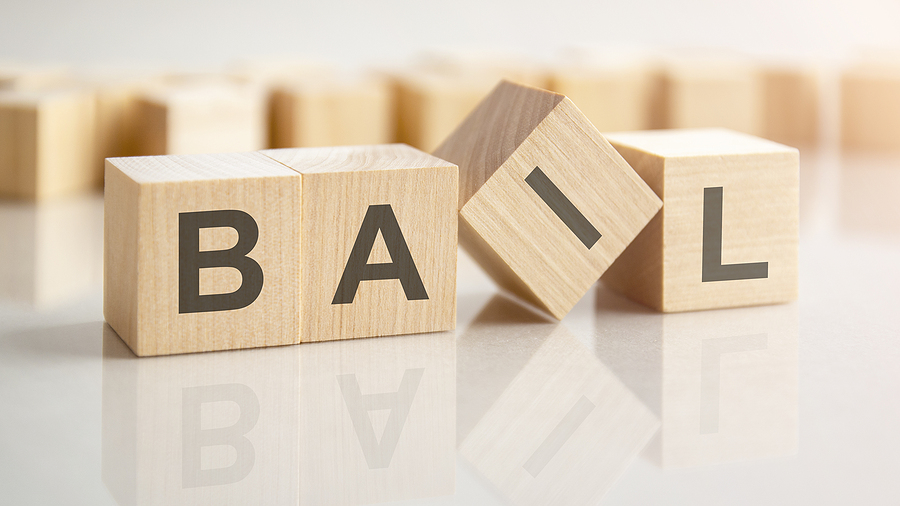Navigating the labyrinthine world of bail bonds can be an overwhelming experience for anyone thrust into the legal system following an arrest in Delaware County, Muncie, Indiana. This detailed guide serves as your compass, offering clarity on the crucial mechanics of bail bonds, your rights, and the steps to secure the release of your loved one.

The Indiana Bail Bond System
Before you make decisions that can affect your legal standing, it’s essential to have a solid grasp of what a bail bond is and how it works within the Indiana legal framework. A bail bond serves as a contract between the defendant, the courts, and a bail bond agent. It’s a guarantee that the defendant will appear in court as scheduled or forfeit the bail. In Indiana, bail bond laws are codified in Title 35 of the Indiana Code, which provides the statutory framework for the state’s bail bondsmen and women.
Indiana’s bail system is governed by specific laws that dictate how bail is set, the process for obtaining a bail bond, and the obligations of a defendant once they have been released on bail. Regulations exist to protect your rights and ensure that you are treated fairly under the law.
Top Benefits of Bail Bonds
Understanding the benefits of a bail bond can significantly ease the stress and uncertainty that often accompany a Muncie arrest. By utilizing a bail bond, individuals can secure their release from custody while awaiting trial, enabling them to continue their daily responsibilities and seek legal guidance. This crucial tool provides a sense of relief and support during a challenging time, ensuring a smoother transition through the legal process.
☑ Ensuring Court Appearance
A bail bond allows defendants to be released from jail while waiting for their court date. This freedom enables them to continue working, taking care of family, and preparing their defense, improving their court appearance compliance.
☑ Financial Flexibility
For many families, coming up with the full amount of bail can be financially burdensome. A bail bond requires only a fraction of the bail amount to be paid, making it a more affordable option for many individuals.
☑ Expedited Release Process
Bail bondsmen can often secure your release from jail within hours of being contacted, considerably reducing the time you spend incarcerated. This is especially true for those who need to surrender to an arrest warrant. They can opt for a prearranged bail bond.
Types of Bail Bonds
Indiana recognizes three primary types of bail bonds that can be used in Delaware County:
➀ Cash Bonds
A cash bond is a type of bail bond that requires the defendant or someone on their behalf to pay the full amount of bail in cash to the court. This is different than a bail bond which is typically obtained through a bail bondsman and requires a percentage of the bail amount to be paid. While a cash bond can be expensive, it ensures that the defendant will appear in court and often results in the release of the defendant from jail. However, if the defendant fails to appear in court, the cash bond will be forfeited to the court. Overall, a cash bond is a way for individuals to secure their release from jail while awaiting trial.
➁ Surety Bonds
A surety bond is an agreement between three parties: the principal (bail bondsman), the obligee (the arrested person), and the surety (the co-signer). In the simplest terms, a surety bond ensures that the principal will fulfill their obligations to the obligee, with the surety acting as a guarantee that this will happen. This type of bond is often used in industries where there is a risk of financial loss, such as the bail bond industry.
➂ Property Bonds
A property bond is a specific type of bail bond used to secure the release of someone who has been arrested and detained in jail. When an individual or their loved ones do not have enough cash to post bail, a property bond offers an alternative solution. Instead of cash, the individual can offer the value of their property as collateral to secure the bond. Once the bond is paid in full, the individual is released from jail and can await their trial at home. A property bond can be a viable option for those who do not have the necessary funds readily available, but it is important to understand the risks and responsibilities associated with using collateral.
How Bail Bonds Work in Delaware County
In Muncie, understanding the available bail bonds can mean the difference between swift release and an extended stay. Securing a bail bond involves a series of steps and responsibilities. It’s a process that demands careful attention to detail and full cooperation between the defendant, their cosigner (usually needed unless turning yourself in for a warrant), and the bail bond agent.
Responsibilities of All Parties
Defendant – The defendant must show up to court as scheduled. Failure to do so will result in the bail being revoked and a warrant for arrest being issued. They also need to keep the bail bond agent informed of their location and any changes in their contact information.
Cosigner – The cosigner is financially responsible for the full amount of the bond if the defendant fails to appear in court. They also need to ensure that the defendant complies with all court orders related to their release on bail.
Bail Bond Agent – The bail bond agent is responsible for ensuring that the defendant is able to post bail. They will assist in the payment process and provide legal advice, as well as guaranteeing the bail amount to the court should the defendant fail to appear as required.
Conditions of Bail
The courts may impose specific terms and conditions on your bail, such as no-contact orders, travel restrictions, or requirements for mental health or substance abuse treatment programs. It’s important to adhere to these conditions to remain in good standing with the court.
Process of Obtaining a Bail Bond
The first step is to contact a reputable Delaware County bail bond company in Muncie, Indiana. You will need to provide them with your name and booking number. The bail bond agent will then work with you to determine the type of bond you need and the best way to secure it.
The Delaware County Jail
To expedite the Muncie, Indiana bail process, it’s useful to have the contact information for the Delaware County Jail:
123 Jail St.
Muncie, IN 47301
Phone: (765) 747-7760
FAQs About Ball State University Bail Bonds
Given the presence of Ball State University in Muncie, it’s important to address the unique needs of students and their families.
Can a Student Contact a Muncie Bail Bondsman Directly?
Despite being over 18, if the student requires a cosigner, this typically involves family or guardians providing their consent.
What Happens Next After a Muncie Student Is Released on Bail?
They must attend all scheduled court appearances as required by their release, and any other conditions that are set by the court or the bondsman must be adhered to.
If a Student is Arrested On or Around Campus, Will They Face Expulsion?
The answer, unfortunately, is not so cut and dry. It ultimately depends on the severity of the situation and the actions of the student in question.
Key Takeaways
The bail bond process is not something one plans for, yet it’s vital to be prepared in the event you or a loved one needs to negotiate it. By understanding the intricacies of bail bonds in Muncie, Indiana, you are better equipped to protect your interests and ensure a seamless path through the legal system. Remember to arm yourself with information, seek professional legal advice when necessary, and always comply with court-ordered obligations. Your understanding and attention could positively influence the outcome of your legal ordeal.
We hope this blog post has shed some light on getting a loved one out of jail in Muncie. If you need assistance right now, we can help. Contact Woods Bail Bonds at 765-644-0400 for 24 hour bail bond services in Delaware County, Indiana you can trust. We also offer prearranged bail bond service for arrest warrants and probation violations.
Related Posts:
Get Fast and Friendly Bail Bond Services in Muncie, Indiana!
Was Your Friend Arrested at Ball State University in Muncie, Indiana?
Decoding Bail Bonds: What to Know Before You Sign



